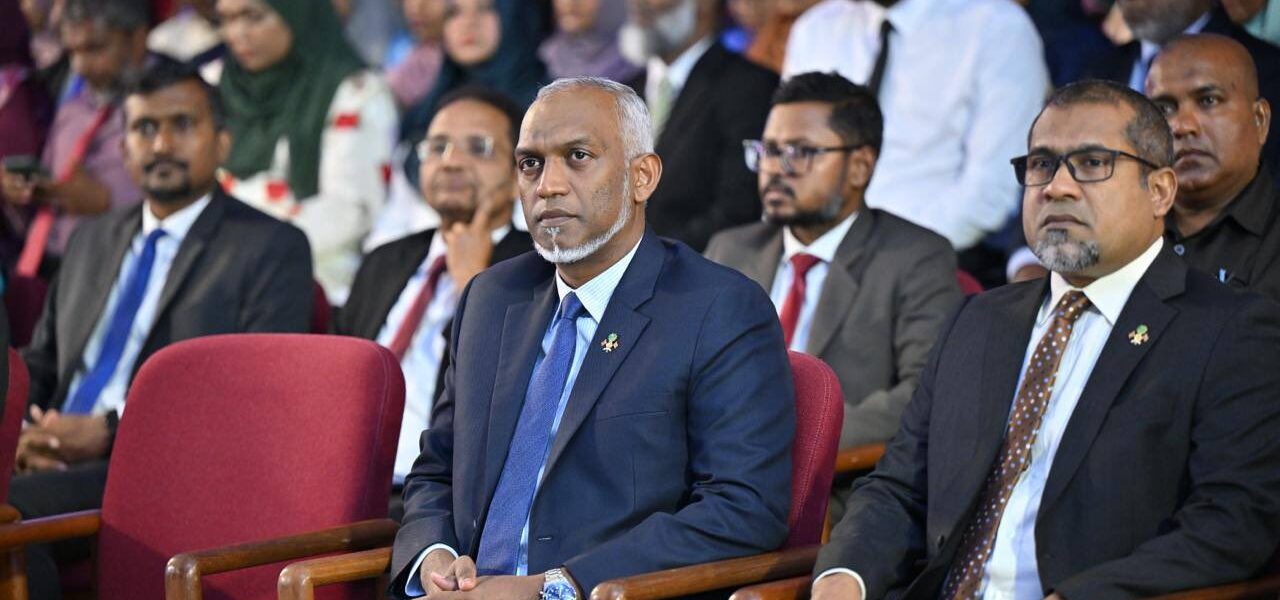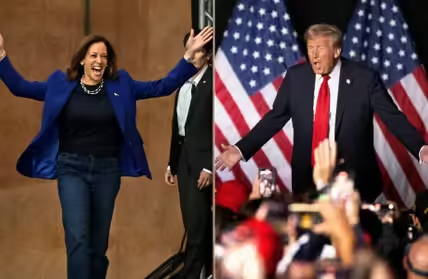Maldives President Mohamed Muizzu to Visit India: A Diplomatic Shift After “India Out” Campaign
The political landscape between India and the Maldives is undergoing a significant shift. Maldivian President Mohamed Muizzu, who came to power in November 2022 on the back of the controversial “India Out” campaign, is preparing for an official visit to India. This move represents a notable shift from Muizzu’s early stance, where his government sought to distance itself from India, promoting a policy that called for the removal of Indian troops and reducing Indian influence in the region.
Despite the frosty start, Muizzu’s administration seems keen to reset ties with New Delhi. The Maldivian government confirmed that the president’s visit could happen as early as next week, with dates being finalized. This visit marks a significant step in rebuilding relations after months of tension, particularly following a diplomatic row involving key Maldivian officials.
Resignations Spark Diplomacy Reset
In a surprising development, two deputy ministers in Muizzu’s administration—Malcha Sharif and Mariam Shuna—recently resigned from their posts in the youth ministry. This comes just days ahead of the president’s planned visit to India. The timing of these resignations is particularly telling, as both officials were at the center of a diplomatic incident earlier this year.
In January 2023, Sharif and Shuna made derogatory remarks about Indian Prime Minister Narendra Modi during his visit to Lakshadweep, where he was promoting the islands as a tourist destination. Their comments triggered outrage in India and sparked a boycott campaign against the Maldives, severely affecting its tourism industry, which heavily relies on Indian visitors.
In response to the backlash, the Maldivian government quickly suspended the two ministers and a third official, Abdullah Majid, in an attempt to defuse the situation. Now, the resignation of Sharif and Shuna appears to be part of a broader diplomatic effort to mend fences with India, especially as Muizzu prepares for his first state visit to New Delhi. Majid, however, remains in his post, though his future is uncertain.
India’s Strategic Patience Pays Off
The diplomatic reset between India and the Maldives is a testament to India’s strategic patience and economic diplomacy. Despite the initial hostility from Muizzu’s government, India continued to invest in Maldivian infrastructure projects, most notably the Thila-Male Bridge Project. This ambitious $500 million connectivity initiative is being funded through Indian credit and grants and is expected to be completed by 2026.
India’s decision to maintain its financial and technical support for the Maldives, even amid political tensions, appears to have paid off. The Thila-Male Bridge, one of the largest infrastructure projects in the Maldives, serves as a reminder of India’s role as a reliable and committed partner. This project, along with other strategic investments, has helped steer the Maldives back towards a more cooperative stance.
Strengthening Defense Cooperation
Another sign of warming relations came this week during the Fifth Maldives-India Defense Cooperation Dialogue, where both nations agreed to bolster their defense ties. This represents a significant turnaround from Muizzu’s earlier position, where he called for the removal of Indian troops stationed in the Maldives. These troops, deployed to assist with humanitarian and search and rescue operations, had become a point of contention in the “India Out” campaign.
With the recent defense talks, it’s clear that both countries recognize the importance of working together on security issues, particularly given the strategic location of the Maldives in the Indian Ocean. India’s consistent support in defense and infrastructure projects seems to have reshaped Muizzu’s stance on bilateral relations.
A Diplomatic Victory for India
For India, Muizzu’s upcoming visit and the resignation of the controversial ministers represent a significant diplomatic victory. India’s patient approach and commitment to regional stability have allowed it to navigate the challenges posed by Muizzu’s early anti-India rhetoric. The Thila-Male Bridge and ongoing defense cooperation demonstrate India’s long-term investment in the Maldives, even when political tensions threatened to derail progress.
This shift in the Maldives’ approach is also a testament to India’s Neighborhood First Policy, which emphasizes close ties with neighboring countries, regardless of short-term political differences. New Delhi’s ability to maintain strategic and economic partnerships with the Maldives, despite the initial pushback, has proven to be a successful strategy.
The Future of India-Maldives Relations
As Muizzu prepares for his visit to New Delhi, it is clear that the Maldives’ reliance on India for both economic development and tourism cannot be ignored. The initial “India Out” rhetoric has proven unsustainable, and the Maldives now seeks to rebuild and strengthen its ties with India. The focus of Muizzu’s visit is expected to center on enhancing cooperation in infrastructure, tourism, and defense.
India, as the Maldives’ largest regional partner, has once again demonstrated its ability to maintain long-term, strategic relationships, even when faced with political challenges. Muizzu’s visit to India marks a new chapter in the bilateral relationship, with both countries looking to move forward on key issues of mutual interest.
Conclusion: A New Chapter for India and the Maldives
The upcoming visit by Maldivian President Mohamed Muizzu signals a diplomatic reset after months of strained relations. India’s economic investments and defense partnerships have played a crucial role in guiding this shift, as has its patient, strategic approach. As the Maldives looks to rekindle its ties with India, this visit could lay the groundwork for stronger bilateral cooperation in the years to come.







 {
#divFLRARight, #divFLRALeft {
display: none !important;
}
}
</style>
<script>
/(trident|msie)/i.test(navigator.userAgent) && document.getElementById && window.addEventListener && window.addEventListener()